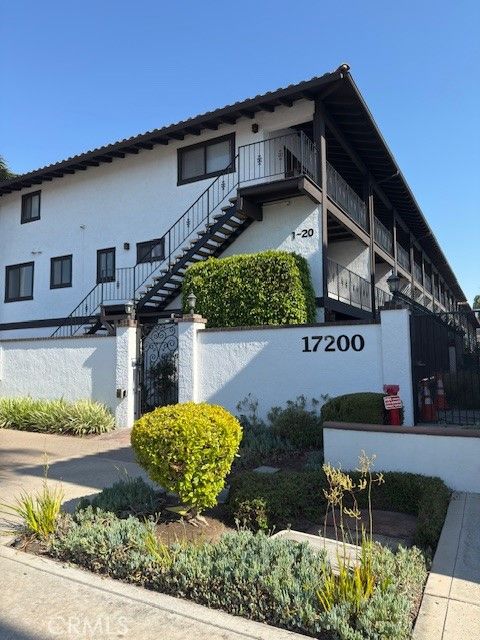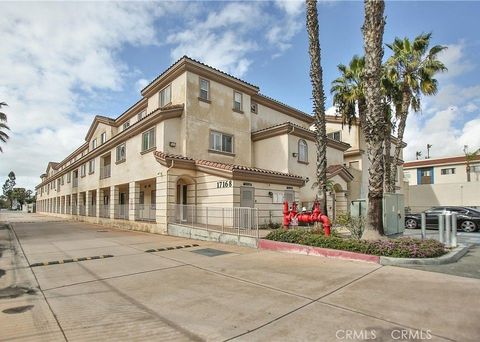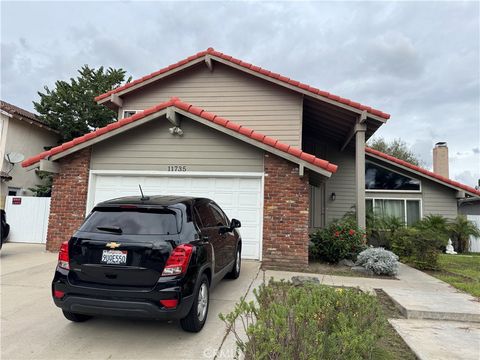Serving Fountain Valley and Orange County communities for over 35 years. (714) 343-9294 MICAH STOVALL #DRE01240489 Real Estate
Real Estate Just Listed Today in Fountain Valley CA
-
$575,000
17200 Newhope Street #217
Fountain Valley, CA -
$419,999
17200 Newhope Street #109
Fountain Valley, CA -
$659,990
17168 Newhope #222
Fountain Valley, CA -
$1,435,000
18016 Roch Court
Fountain Valley, CA -
$1,550,000
18021 Roch Court
Fountain Valley, CA -
$1,500,000
9429 El Valle Ave
Fountain Valley, CA -
$755,000
17200 Newhope St #23
Fountain Valley, CA -
$2,295,000
17413 Siena Lane
Fountain Valley, CA -
$2,000,000
11383 Stonecress Avenue
Fountain Valley, CA -
$1,699,000
11735 Quartz
Fountain Valley, CA
Lot Size2.55 ac
Home Size1,040 sqft
Beds2 Beds
Baths2 Baths
Lot SizeN/A
Home Size572 sqft
Beds1 Bed
Baths1 Bath
Lot SizeN/A
Home Size1,112 sqft
Beds2 Beds
Baths2 Baths
Lot Size3,315 sqft
Home Size1,811 sqft
Beds3 Beds
Baths2.5 Baths
Lot Size3,673 sqft
Home Size1,920 sqft
Beds4 Beds
Baths3.5 Baths
Lot Size7,201 sqft
Home Size1,875 sqft
Beds3 Beds
Baths2 Baths
Lot Size6,277 sqft
Home Size1,680 sqft
Beds2 Beds
Baths2 Baths
Lot Size5,951 sqft
Home Size3,408 sqft
Beds4 Beds
Baths4 Baths
Lot Size6,256 sqft
Home Size2,929 sqft
Beds6 Beds
Baths4.5 Baths
Lot Size7,201 sqft
Home Size2,232 sqft
Beds4 Beds
Baths3 Baths
-
Lot Size2.55 ac
Home Size1,040 sqft
Beds2 Beds
Baths2 Baths
-
Lot SizeN/A
Home Size572 sqft
Beds1 Bed
Baths1 Bath
-
Lot SizeN/A
Home Size1,112 sqft
Beds2 Beds
Baths2 Baths
-
Lot Size3,315 sqft
Home Size1,811 sqft
Beds3 Beds
Baths2.5 Baths
-
Lot Size3,673 sqft
Home Size1,920 sqft
Beds4 Beds
Baths3.5 Baths
-
Lot Size7,201 sqft
Home Size1,875 sqft
Beds3 Beds
Baths2 Baths
-
Lot Size6,277 sqft
Home Size1,680 sqft
Beds2 Beds
Baths2 Baths
-
Lot Size5,951 sqft
Home Size3,408 sqft
Beds4 Beds
Baths4 Baths
-
Lot Size6,256 sqft
Home Size2,929 sqft
Beds6 Beds
Baths4.5 Baths
-
Lot Size7,201 sqft
Home Size2,232 sqft
Beds4 Beds
Baths3 Baths
-
$575,000
17200 Newhope Street #217
Fountain Valley CA Real Estate with the Largest Lots
-
$575,000
17200 Newhope Street #217
Fountain Valley, CA -
$419,999
17200 Newhope Street #109
Fountain Valley, CA -
$659,990
17168 Newhope #222
Fountain Valley, CA -
$1,435,000
18016 Roch Court
Fountain Valley, CA -
$1,550,000
18021 Roch Court
Fountain Valley, CA -
$1,500,000
9429 El Valle Ave
Fountain Valley, CA -
$755,000
17200 Newhope St #23
Fountain Valley, CA -
$2,295,000
17413 Siena Lane
Fountain Valley, CA -
$2,000,000
11383 Stonecress Avenue
Fountain Valley, CA -
$1,699,000
11735 Quartz
Fountain Valley, CA
Lot Size2.55 ac
Home Size1,040 sqft
Beds2 Beds
Baths2 Baths
Lot SizeN/A
Home Size572 sqft
Beds1 Bed
Baths1 Bath
Lot SizeN/A
Home Size1,112 sqft
Beds2 Beds
Baths2 Baths
Lot Size3,315 sqft
Home Size1,811 sqft
Beds3 Beds
Baths2.5 Baths
Lot Size3,673 sqft
Home Size1,920 sqft
Beds4 Beds
Baths3.5 Baths
Lot Size7,201 sqft
Home Size1,875 sqft
Beds3 Beds
Baths2 Baths
Lot Size6,277 sqft
Home Size1,680 sqft
Beds2 Beds
Baths2 Baths
Lot Size5,951 sqft
Home Size3,408 sqft
Beds4 Beds
Baths4 Baths
Lot Size6,256 sqft
Home Size2,929 sqft
Beds6 Beds
Baths4.5 Baths
Lot Size7,201 sqft
Home Size2,232 sqft
Beds4 Beds
Baths3 Baths
-
Lot Size2.55 ac
Home Size1,040 sqft
Beds2 Beds
Baths2 Baths
-
Lot SizeN/A
Home Size572 sqft
Beds1 Bed
Baths1 Bath
-
Lot SizeN/A
Home Size1,112 sqft
Beds2 Beds
Baths2 Baths
-
Lot Size3,315 sqft
Home Size1,811 sqft
Beds3 Beds
Baths2.5 Baths
-
Lot Size3,673 sqft
Home Size1,920 sqft
Beds4 Beds
Baths3.5 Baths
-
Lot Size7,201 sqft
Home Size1,875 sqft
Beds3 Beds
Baths2 Baths
-
Lot Size6,277 sqft
Home Size1,680 sqft
Beds2 Beds
Baths2 Baths
-
Lot Size5,951 sqft
Home Size3,408 sqft
Beds4 Beds
Baths4 Baths
-
Lot Size6,256 sqft
Home Size2,929 sqft
Beds6 Beds
Baths4.5 Baths
-
Lot Size7,201 sqft
Home Size2,232 sqft
Beds4 Beds
Baths3 Baths
-
$575,000
17200 Newhope Street #217
Largest Price Reduced Real Estate in Fountain Valley CA
-
$575,000
17200 Newhope Street #217
Fountain Valley, CA -
$419,999
17200 Newhope Street #109
Fountain Valley, CA -
$659,990
17168 Newhope #222
Fountain Valley, CA -
$1,435,000
18016 Roch Court
Fountain Valley, CA -
$1,550,000
18021 Roch Court
Fountain Valley, CA -
$1,500,000
9429 El Valle Ave
Fountain Valley, CA -
$755,000
17200 Newhope St #23
Fountain Valley, CA -
$2,295,000
17413 Siena Lane
Fountain Valley, CA -
$2,000,000
11383 Stonecress Avenue
Fountain Valley, CA -
$1,699,000
11735 Quartz
Fountain Valley, CA
Lot Size2.55 ac
Home Size1,040 sqft
Beds2 Beds
Baths2 Baths
Lot SizeN/A
Home Size572 sqft
Beds1 Bed
Baths1 Bath
Lot SizeN/A
Home Size1,112 sqft
Beds2 Beds
Baths2 Baths
Lot Size3,315 sqft
Home Size1,811 sqft
Beds3 Beds
Baths2.5 Baths
Lot Size3,673 sqft
Home Size1,920 sqft
Beds4 Beds
Baths3.5 Baths
Lot Size7,201 sqft
Home Size1,875 sqft
Beds3 Beds
Baths2 Baths
Lot Size6,277 sqft
Home Size1,680 sqft
Beds2 Beds
Baths2 Baths
Lot Size5,951 sqft
Home Size3,408 sqft
Beds4 Beds
Baths4 Baths
Lot Size6,256 sqft
Home Size2,929 sqft
Beds6 Beds
Baths4.5 Baths
Lot Size7,201 sqft
Home Size2,232 sqft
Beds4 Beds
Baths3 Baths
-
Lot Size2.55 ac
Home Size1,040 sqft
Beds2 Beds
Baths2 Baths
-
Lot SizeN/A
Home Size572 sqft
Beds1 Bed
Baths1 Bath
-
Lot SizeN/A
Home Size1,112 sqft
Beds2 Beds
Baths2 Baths
-
Lot Size3,315 sqft
Home Size1,811 sqft
Beds3 Beds
Baths2.5 Baths
-
Lot Size3,673 sqft
Home Size1,920 sqft
Beds4 Beds
Baths3.5 Baths
-
Lot Size7,201 sqft
Home Size1,875 sqft
Beds3 Beds
Baths2 Baths
-
Lot Size6,277 sqft
Home Size1,680 sqft
Beds2 Beds
Baths2 Baths
-
Lot Size5,951 sqft
Home Size3,408 sqft
Beds4 Beds
Baths4 Baths
-
Lot Size6,256 sqft
Home Size2,929 sqft
Beds6 Beds
Baths4.5 Baths
-
Lot Size7,201 sqft
Home Size2,232 sqft
Beds4 Beds
Baths3 Baths
-
$575,000
17200 Newhope Street #217
Most Expensive Real Estate in Fountain Valley CA
-
$575,000
17200 Newhope Street #217
Fountain Valley, CA -
$419,999
17200 Newhope Street #109
Fountain Valley, CA -
$659,990
17168 Newhope #222
Fountain Valley, CA -
$1,435,000
18016 Roch Court
Fountain Valley, CA -
$1,550,000
18021 Roch Court
Fountain Valley, CA -
$1,500,000
9429 El Valle Ave
Fountain Valley, CA -
$755,000
17200 Newhope St #23
Fountain Valley, CA -
$2,295,000
17413 Siena Lane
Fountain Valley, CA -
$2,000,000
11383 Stonecress Avenue
Fountain Valley, CA -
$1,699,000
11735 Quartz
Fountain Valley, CA
Lot Size2.55 ac
Home Size1,040 sqft
Beds2 Beds
Baths2 Baths
Lot SizeN/A
Home Size572 sqft
Beds1 Bed
Baths1 Bath
Lot SizeN/A
Home Size1,112 sqft
Beds2 Beds
Baths2 Baths
Lot Size3,315 sqft
Home Size1,811 sqft
Beds3 Beds
Baths2.5 Baths
Lot Size3,673 sqft
Home Size1,920 sqft
Beds4 Beds
Baths3.5 Baths
Lot Size7,201 sqft
Home Size1,875 sqft
Beds3 Beds
Baths2 Baths
Lot Size6,277 sqft
Home Size1,680 sqft
Beds2 Beds
Baths2 Baths
Lot Size5,951 sqft
Home Size3,408 sqft
Beds4 Beds
Baths4 Baths
Lot Size6,256 sqft
Home Size2,929 sqft
Beds6 Beds
Baths4.5 Baths
Lot Size7,201 sqft
Home Size2,232 sqft
Beds4 Beds
Baths3 Baths
-
Lot Size2.55 ac
Home Size1,040 sqft
Beds2 Beds
Baths2 Baths
-
Lot SizeN/A
Home Size572 sqft
Beds1 Bed
Baths1 Bath
-
Lot SizeN/A
Home Size1,112 sqft
Beds2 Beds
Baths2 Baths
-
Lot Size3,315 sqft
Home Size1,811 sqft
Beds3 Beds
Baths2.5 Baths
-
Lot Size3,673 sqft
Home Size1,920 sqft
Beds4 Beds
Baths3.5 Baths
-
Lot Size7,201 sqft
Home Size1,875 sqft
Beds3 Beds
Baths2 Baths
-
Lot Size6,277 sqft
Home Size1,680 sqft
Beds2 Beds
Baths2 Baths
-
Lot Size5,951 sqft
Home Size3,408 sqft
Beds4 Beds
Baths4 Baths
-
Lot Size6,256 sqft
Home Size2,929 sqft
Beds6 Beds
Baths4.5 Baths
-
Lot Size7,201 sqft
Home Size2,232 sqft
Beds4 Beds
Baths3 Baths
-
$575,000
17200 Newhope Street #217
Most Square Footage in Fountain Valley CA Real Estate
-
$575,000
17200 Newhope Street #217
Fountain Valley, CA -
$419,999
17200 Newhope Street #109
Fountain Valley, CA -
$659,990
17168 Newhope #222
Fountain Valley, CA -
$1,435,000
18016 Roch Court
Fountain Valley, CA -
$1,550,000
18021 Roch Court
Fountain Valley, CA -
$1,500,000
9429 El Valle Ave
Fountain Valley, CA -
$755,000
17200 Newhope St #23
Fountain Valley, CA -
$2,295,000
17413 Siena Lane
Fountain Valley, CA -
$2,000,000
11383 Stonecress Avenue
Fountain Valley, CA -
$1,699,000
11735 Quartz
Fountain Valley, CA
Lot Size2.55 ac
Home Size1,040 sqft
Beds2 Beds
Baths2 Baths
Lot SizeN/A
Home Size572 sqft
Beds1 Bed
Baths1 Bath
Lot SizeN/A
Home Size1,112 sqft
Beds2 Beds
Baths2 Baths
Lot Size3,315 sqft
Home Size1,811 sqft
Beds3 Beds
Baths2.5 Baths
Lot Size3,673 sqft
Home Size1,920 sqft
Beds4 Beds
Baths3.5 Baths
Lot Size7,201 sqft
Home Size1,875 sqft
Beds3 Beds
Baths2 Baths
Lot Size6,277 sqft
Home Size1,680 sqft
Beds2 Beds
Baths2 Baths
Lot Size5,951 sqft
Home Size3,408 sqft
Beds4 Beds
Baths4 Baths
Lot Size6,256 sqft
Home Size2,929 sqft
Beds6 Beds
Baths4.5 Baths
Lot Size7,201 sqft
Home Size2,232 sqft
Beds4 Beds
Baths3 Baths
-
Lot Size2.55 ac
Home Size1,040 sqft
Beds2 Beds
Baths2 Baths
-
Lot SizeN/A
Home Size572 sqft
Beds1 Bed
Baths1 Bath
-
Lot SizeN/A
Home Size1,112 sqft
Beds2 Beds
Baths2 Baths
-
Lot Size3,315 sqft
Home Size1,811 sqft
Beds3 Beds
Baths2.5 Baths
-
Lot Size3,673 sqft
Home Size1,920 sqft
Beds4 Beds
Baths3.5 Baths
-
Lot Size7,201 sqft
Home Size1,875 sqft
Beds3 Beds
Baths2 Baths
-
Lot Size6,277 sqft
Home Size1,680 sqft
Beds2 Beds
Baths2 Baths
-
Lot Size5,951 sqft
Home Size3,408 sqft
Beds4 Beds
Baths4 Baths
-
Lot Size6,256 sqft
Home Size2,929 sqft
Beds6 Beds
Baths4.5 Baths
-
Lot Size7,201 sqft
Home Size2,232 sqft
Beds4 Beds
Baths3 Baths
-
$575,000
17200 Newhope Street #217
Least Expensive Real Estate in Fountain Valley CA
-
$575,000
17200 Newhope Street #217
Fountain Valley, CA -
$419,999
17200 Newhope Street #109
Fountain Valley, CA -
$659,990
17168 Newhope #222
Fountain Valley, CA -
$1,435,000
18016 Roch Court
Fountain Valley, CA -
$1,550,000
18021 Roch Court
Fountain Valley, CA -
$1,500,000
9429 El Valle Ave
Fountain Valley, CA -
$755,000
17200 Newhope St #23
Fountain Valley, CA -
$2,295,000
17413 Siena Lane
Fountain Valley, CA -
$2,000,000
11383 Stonecress Avenue
Fountain Valley, CA -
$1,699,000
11735 Quartz
Fountain Valley, CA
Lot Size2.55 ac
Home Size1,040 sqft
Beds2 Beds
Baths2 Baths
Lot SizeN/A
Home Size572 sqft
Beds1 Bed
Baths1 Bath
Lot SizeN/A
Home Size1,112 sqft
Beds2 Beds
Baths2 Baths
Lot Size3,315 sqft
Home Size1,811 sqft
Beds3 Beds
Baths2.5 Baths
Lot Size3,673 sqft
Home Size1,920 sqft
Beds4 Beds
Baths3.5 Baths
Lot Size7,201 sqft
Home Size1,875 sqft
Beds3 Beds
Baths2 Baths
Lot Size6,277 sqft
Home Size1,680 sqft
Beds2 Beds
Baths2 Baths
Lot Size5,951 sqft
Home Size3,408 sqft
Beds4 Beds
Baths4 Baths
Lot Size6,256 sqft
Home Size2,929 sqft
Beds6 Beds
Baths4.5 Baths
Lot Size7,201 sqft
Home Size2,232 sqft
Beds4 Beds
Baths3 Baths
-
Lot Size2.55 ac
Home Size1,040 sqft
Beds2 Beds
Baths2 Baths
-
Lot SizeN/A
Home Size572 sqft
Beds1 Bed
Baths1 Bath
-
Lot SizeN/A
Home Size1,112 sqft
Beds2 Beds
Baths2 Baths
-
Lot Size3,315 sqft
Home Size1,811 sqft
Beds3 Beds
Baths2.5 Baths
-
Lot Size3,673 sqft
Home Size1,920 sqft
Beds4 Beds
Baths3.5 Baths
-
Lot Size7,201 sqft
Home Size1,875 sqft
Beds3 Beds
Baths2 Baths
-
Lot Size6,277 sqft
Home Size1,680 sqft
Beds2 Beds
Baths2 Baths
-
Lot Size5,951 sqft
Home Size3,408 sqft
Beds4 Beds
Baths4 Baths
-
Lot Size6,256 sqft
Home Size2,929 sqft
Beds6 Beds
Baths4.5 Baths
-
Lot Size7,201 sqft
Home Size2,232 sqft
Beds4 Beds
Baths3 Baths
-
$575,000
17200 Newhope Street #217
Powered by WordPress. Built on the Thematic Theme Framework. test
Copyright 2026 | Orange County web design












When Will Home Prices Be Affordable Again?
Home buyers have their fingers crossed that 2024 will be the year where home prices regain some normalcy. One promising sign entering the new year: mortgage rates, which remained stubbornly high throughout 2023, have steadily declined over the last couple of months.
Following eight consecutive weeks of declines, the average 30-year fixed rate rose for the second straight week by a modest four basis points to 6.66%—more than one percentage point lower than the 7.79% peak of 2023—for the week ending January 11, according to Freddie Mac. A basis point is one-hundredth of one percentage point.
Yet, despite this easing, mortgage rates remain elevated and home prices are stubbornly high as historically low housing stock continues to put homeownership out of reach for many—most notably first-time buyers—who remain more pessimistic than ever about being able to afford a home.
Housing Market Forecast for 2024
2023 was a demoralizing year for many aspiring home buyers.
Mortgage rates surged—hitting a high of 7.79% in October—and median home prices in the third quarter were north of $400,000. Moreover, in July, average monthly payments hit their highest level ever at $2,306, according to Intercontinental Exchange, a financial technology and data services provider.
However, 2024 may be a better year to purchase a home—at least for some. While home prices will likely remain elevated—and even increase in some markets—industry experts expect prices in certain areas of the country to soften.
Economists are also optimistic that the Federal Reserve is done with its rate-hiking campaign to lower inflation after policymakers kept the federal funds rate unchanged for a third straight meeting on December 13. The federal funds rate is the benchmark interest rate financial institutions charge each other for overnight loans; it tends to indirectly influence mortgage rates.
Even so, affordability challenges will continue in 2024. Pent-up demand and low inventory will generally bolster prices, and elevated mortgage rates will remain until the Fed implements cuts to the federal funds rate.
Mark Fleming, chief economist at First American Financial Corporation, predicts a “flat stretch” ahead for the housing market. “If the 2020-2021 housing market was too hot, then the 2023 market was probably too cold, but 2024 won’t yet be just right,” Fleming said in his 2024 forecast.
When Will the Housing Market Recover?
For a housing recovery to occur, several conditions must unfold.
“For the best possible outcome, we’d first need to see inventories of homes for sale turn considerably higher,” says Keith Gumbinger, vice president of mortgage website HSH.com. “This additional inventory, in turn, would ease the upward pressure on home prices, leveling them off or perhaps helping them to settle back somewhat from peak or near-peak levels.”
And, of course, interest rates would need to cool off.
But Gumbinger says don’t hope they cool too quickly. Rapidly falling rates could create a surge of demand that wipes away any inventory gains, causing home prices to rebound.
“Better that rate reductions happen at a metered pace, incrementally improving buyer opportunities over a stretch of time, rather than all at once,” Gumbinger says.
He adds that mortgage rates returning to a more “normal” upper 4% to lower 5% range would also help the housing market, over time, return to 2014-2019 levels. Yet, Gumbinger predicts it could be a while before we return to those rates.
Will Mortgage Originations Remain Low Through 2024?
Eye-popping mortgage rates in the last few years have led to plummeting mortgage applications. The good news is that rates have begun receding in recent weeks.
While application activity remains tepid, the Mortgage Bankers Association (MBA) sees this as the bottom, predicting total mortgage origination volume will increase from an anticipated $1.64 trillion in 2023 to $1.95 trillion next year amid rates drifting down to near 6% by the end of 2024.
Fannie Mae also expects mortgage activity will trend up, with single-family mortgage originations undergoing a slow but meaningful recovery in 2024, according to a recent report.
Housing Inventory Forecast for 2024
With many homeowners “locked in” at low interest rates or unwilling to sell due to high home prices, demand continues to outpace housing supply—and likely will for a while.
“I don’t expect to see a meaningful increase in the supply of existing homes for sale until mortgage rates are back down in the low 5% range, so probably not in 2024,” says Rick Sharga, founder and CEO of CJ Patrick Company, a market intelligence and business advisory firm.
Housing stock remains near historic lows—especially entry-level supply—which has propped up demand and sustained ultra-high home prices.
Nevertheless, there are some hopeful signs.
For one, home-builder outlook, which had been on a downslide, is trending back up amid declining mortgage rates and better building conditions.
The most recent National Association of Home Builders (NAHB)/Wells Fargo Housing Market Index (HMI), which tracks builder sentiment, rose from 34 to 37 in December. A reading of 50 or above means more builders see good conditions ahead for new construction.
At the same time, new single-family building permits managed to tick up slightly in November—the 10th consecutive monthly increase—according to the latest data from the U.S. Census Bureau and U.S. Department of Housing and Urban Development.
Existing-Home Sales Rebound Slightly: Is a Home-Buying Upswing in Play for 2024?
Existing-home sales underwent a slight, surprising thaw in November, despite still-high mortgage rates, rising home prices and low housing inventory.
Following a 4.1% nosedive in October, existing-home sales inched up by 0.8% in November, ending five straight months of declines, according to the latest monthly data reported by the National Association of Realtors (NAR). Year-over-year transactions were down 7.3%, the smallest annual decline since April 2022, according to Realtor.com.
These contract closings likely occurred during the two months before November when the average 30-year fixed mortgage rate ascended to heights not seen in over two decades, suggesting impatient home buyers may be adjusting to higher rates.
Though sales activity remains weak, experts predict this uptick could signify a burgeoning turnaround in 2024.
“Falling rates will bring both more buyers and more sellers into the housing market,” said Dr. Lisa Sturtevant, chief economist at BrightMLS, in an emailed statement. BrightMLS forecasts existing home sales to reach 4.6 million in 2024—up from an expected 4.1 million in 2023—and inventory to increase by approximately 8% by the end of the year.
Meanwhile, chronically low resale inventory receded 1.7%, leaving existing home stock at a scant 3.5-month supply at the current sales pace. Many experts say a balanced housing market has four to six months of inventory.
Demoralized Home Buyers See Little Affordability Relief in 2024
If you want to buy a home today, expect to see prices 40% higher compared to February 2020, according to Zillow. In the third quarter of 2023 alone, NAR reports that home prices grew in more than 80% of U.S. metro areas year over year.
Combine elevated home prices with mortgage rates in the high-6% range amid persistent inflation, and it’s no wonder that the latest Fannie Mae Home Purchase Sentiment Index (HPSI) reported 86% of consumers say they need to put home-buying plans on hold, a new survey record.
“Over the past year, the HPSI has plateaued at a low level, evidence of persistent consumer pessimism regarding the state of the housing market,” said Doug Duncan, senior vice president and chief economist at Fannie Mae, in a press statement. “Even if mortgage rates decline over the next year, which we currently expect, it’s unlikely to meaningfully affect affordability.”
Other indices also indicate that home affordability, while likely to improve to some degree over the next year, may still be out of reach for many in 2024.
First-time buyers hoping to land a home at a lower price point are likely having the hardest time as affordability conditions continue to deteriorate, according to NAR.
The trade association’s First-Time Homebuyer Affordability Index preliminary third-quarter reading came in at 61.9, compared to 65.4 in the second quarter. A reading of 100 indicates that a family earning a median income earns exactly enough to qualify for a mortgage and afford a typical home.
Moreover, the median monthly housing payment hit an all-time high of $2,715 in 2023, up 12.6% from 2022, according to a Redfin report, which labeled 2023 the least affordable year on record for home buyers. Lenders generally advise monthly mortgage payments not to exceed 30% of pre-tax income.
Will the Housing Market Crash in 2024?
Despite some areas seeing price declines, the likelihood of a housing market crash—a rapid drop in unsustainably high home prices due to waning demand—remains low. Experts point out that today’s homeowners stand on much more secure footing than those coming out of the 2008 financial crisis, with many borrowers having positive home equity.
Moreover, Orphe Divounguy, senior macroeconomist at Zillow Home Loans, says competition for houses has remained surprisingly resilient despite mortgage rates reaching highs not seen in more than two decades.
“In 2024, I expect we’ll see home appreciation take a step back but not plummet,” Divounguy says, especially as inventory is still constrained. Most experts say supply will remain tight for the foreseeable future.
Divounguy also notes that several factors, including Millennials entering their prime home-buying years, wage growth and financial wealth are tailwinds that will sustain housing demand in 2024.
Even so, with fewer homes selling, Dan Hnatkovskyy, co-founder and CEO of NewHomesMate, a marketplace for new construction homes, sees a price collapse within the realm of possibility, especially in markets where real estate investors scooped up numerous properties.
“If something pushes that over the edge, the consequences could be severe,” said Hnatkovskyy, in an emailed statement.
Will Foreclosures Increase in 2024?
Despite foreclosure activity trending up nationally, experts generally don’t expect to see a wave of foreclosures in 2024.
“Foreclosure activity is still only at about 60% of pre-pandemic levels as we prepare to exit 2023, and isn’t likely to be back to 2019 numbers until sometime in mid-to-late 2024,” says Sharga.
The biggest reasons for this, Sharga explains, are the strength of the economy—currently we’re seeing low employment and steady wage growth—along with excellent loan quality and expanded financial relief offerings from mortgage servicers.
Massive growth over the past few years in homeowner equity has helped reduce foreclosures as well. Sharga says that some 80% of today’s homeowners have more than 20% equity in their property. So, while there may be more foreclosure starts in 2024, foreclosure auctions and lender repossessions should remain below 2019 levels.
Even so, foreclosures increased in 2023, raising concerns for some in the industry.
“Foreclosure filings continue to paint a concerning picture,” said Rob Barber, CEO of property data provider Attom, in a report. “As we look ahead to 2024, we anticipate a potential uptick in foreclosure activity as various economic factors evolve and market dynamics shift.”
In November, foreclosure filings were up 5% from last year, according to Attom. At the same time, foreclosure completions dropped 32% from a year ago, which Barber attributes to seasonal factors.
Should I Wait Until 2024 To Buy a Home?
Buying a house—in any market—is a highly personal decision. Because homes represent the largest single purchase most people will make in their lifetime, it’s crucial to be in a solid financial position before diving in.
Use a mortgage calculator to estimate your monthly housing costs based on your down. But if you’re trying to predict what might happen next year, experts say this is probably not the best home-buying strategy.
“The housing market—like so many other markets—is almost impossible to time,“ says Orphe Divounguy, senior macroeconomist at Zillow Home Loans. “The best time for prospective buyers is when they find a home that they like, that meets their family’s current and foreseeable needs and that they can afford.”
Gumbinger agrees that it’s hard to tell would-be homeowners to wait for better conditions.
“More often it seems the case that home prices generally keep rising, so the goalposts for amassing a down payment keep moving, and there’s no guarantee that tomorrow’s conditions will be all that much better in the aggregate than today’s.”
Divounguy says “getting on the housing ladder” is worthwhile to begin building equity and net worth.
Pro Tips for Buying in Today’s Housing Market
Frick offers this expert advice to aspiring buyers:
Pro Tips for Selling in Today’s Housing Market
Divounguy has this expert advice for sellers: